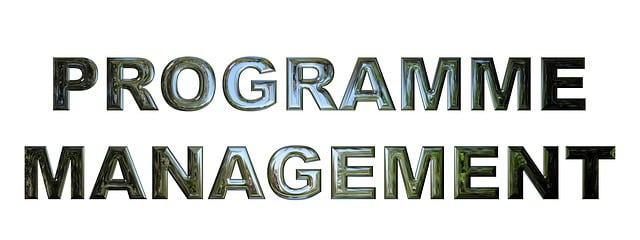Effective business reputation management relies on feedback as a key component, offering insights into customer experiences and public perception. In the digital age, strategies like email marketing and AI chatbots streamline feedback analysis, enabling companies to address concerns promptly. By evaluating criticism objectively, responding positively to negative comments, and measuring impact, businesses can enhance their online image, build trust, and ensure long-term success in a competitive market through robust business reputation management practices.
In the dynamic landscape of business reputation management, feedback is both a powerful tool and an art form. Understanding how to navigate constructive criticism can significantly impact your brand’s perception. This article delves into the essential components of effective response strategies. From recognizing the value of feedback to crafting meaningful replies, we explore techniques to enhance trust and loyalty. Learn how prompt responses and data-driven assessments contribute to a robust business reputation management strategy.
- Understanding Feedback: Its Role in Business Reputation
- Evaluating Constructive Criticism: Separating Truth from Spin
- Responding Promptly: Demonstrating Engagement and Accountability
- Crafting a Positive Response: Building Trust and Loyalty
- Measuring Impact: Tracking Post-Feedback Business Performance
Understanding Feedback: Its Role in Business Reputation

Feedback is a powerful tool in business reputation management, offering insights into customer experiences and perceptions. It plays a pivotal role in shaping how the public views a company, product, or service. Every interaction—from a positive review to a missed call text back—is an opportunity for growth and improvement. By actively listening and responding, businesses can demonstrate their commitment to excellence and foster stronger connections with their audience.
In today’s digital era, where information spreads swiftly, effective business reputation management through feedback is more crucial than ever. Utilizing strategies like email marketing and optimizing landing pages to encourage feedback submission allows companies to engage directly with customers. This two-way communication not only enhances transparency but also enables businesses to address concerns promptly, showcasing their responsiveness and care for client satisfaction.
Evaluating Constructive Criticism: Separating Truth from Spin

Evaluating constructive criticism is a critical aspect of effective business reputation management. When receiving feedback, especially on social media platforms or through customer interactions, it’s essential to separate genuine insights from what might be spin or biased opinions. Start by objectively analyzing the feedback, looking for patterns and common themes that reflect actual issues or strengths within your organization. This involves paying close attention to detail and understanding the context in which the criticism is presented.
In today’s digital era, where social media marketing automation and AI chatbots play a significant role, businesses can leverage these tools to streamline the feedback analysis process. Automation can help identify key words and sentiments in customer comments, allowing for efficient sorting and prioritization of critical issues. This strategic approach ensures that you address the most pressing matters first, demonstrating your commitment to continuous improvement and fostering a positive business reputation.
Responding Promptly: Demonstrating Engagement and Accountability

Responding to feedback promptly is a critical aspect of effective business reputation management. When customers or stakeholders share their thoughts and experiences, immediate action shows that you value their input and are committed to improvement. In today’s digital era, where word-of-mouth travels fast, especially through text message marketing and social media platforms, prompt responses can help mitigate negative perceptions and foster positive relationships.
This swift engagement demonstrates your brand’s accountability and commitment to exceptional customer relationship management (CRM). By analyzing the feedback and implementing necessary changes, businesses can enhance their marketing analytics, identify trends, and make data-driven decisions that contribute to a robust business reputation.
Crafting a Positive Response: Building Trust and Loyalty

When responding to feedback—especially negative comments—in business reputation management, crafting a positive and constructive reply is key. It’s an opportunity to transform a potential issue into a chance to build trust and strengthen customer loyalty. A thoughtful response demonstrates your brand’s commitment to improvement and customer satisfaction, fostering a more positive image.
By automating certain aspects of feedback handling through customer relationship management (CRM) tools, you can ensure timely responses without sacrificing personalization. For instance, using missed call text back systems allows for swift acknowledgment, providing customers with immediate assurance that their feedback is valued. This quick action can often diffuse negative sentiments and invite a more open dialogue, ultimately enhancing your business’s reputation.
Measuring Impact: Tracking Post-Feedback Business Performance

Measuring the impact of feedback is a crucial step in effective business reputation management. By tracking performance changes post-feedback, businesses can objectively assess the value of customer and stakeholder insights. This data-driven approach allows for refining strategies and processes to better align with customer expectations.
For instance, an AI chatbot implemented through WhatsApp marketing campaigns can be monitored for its influence on customer relationship management (CRM). Tracking response rates, query resolution times, and customer satisfaction scores enables businesses to gauge the success of these initiatives. Such insights empower them to enhance their digital engagement strategies, ultimately bolstering their business reputation in today’s competitive landscape.
In the realm of business reputation management, feedback is a powerful tool that can either strengthen or hinder your brand’s image. By understanding the importance of every review and comment, evaluating them objectively, responding promptly, and crafting thoughtful replies, businesses can turn constructive criticism into opportunities for growth. This strategic approach not only enhances customer satisfaction but also fosters trust and loyalty, ultimately driving business performance and solidifying a positive online reputation.
